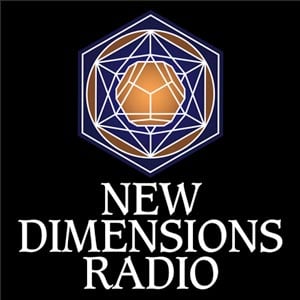Dr. Diane Hennacy Powell describes how her curiosity about human consciousness led her to study the extent of human extrasensory abilities. Her research drove her to focus largely on autism, savant syndrome and abnormal brain function, among other things, to support the existence of extrasensory phenomena such as telepathy, remote viewing, and ESP. As a psychiatrist, she has had the opportunity to work with people with all kinds of experiences of consciousness. She found that autistic children demonstrated telepathy to the greatest extent. Because of the differences in their brain function, “they see things more as they are…it’s like they’re getting information in a pure sensory form.” She is interested in our innate human potential and believes that these children can teach us about that. Powell also discusses clairvoyance, intestinal chemistry, out-of-body experiences, and holograms. As science attempts to unify these phenomena with physics, one theory is that we live in a holographic universe. “Every single part contains the information of the whole.” Our brains receive sensory input in pieces. They then process the information and integrate it all into one representation, or hologram. Dr. Powell believes that accepting these phenomena as real can open the door to a more harmonious way of connecting with one another, and could change our culture for the better. (hosted by Justine Willis Toms)
Bio
Diane Hennacy Powell, M.D. is a neuro-scientist and psychiatrist who completed her training in medicine, neurology, and psychiatry at Johns Hopkins University School of Medicine. She is a former member of Harvard Medical School’s faculty and of a think tank on consciousness at the Salk Institute in La Jolla, California, and has published articles in neuroscience and neuropsychiatry journals.
She is the author of:
- The ESP Enigma: The Scientific Case for Psychic Phenomena
(Walker & Company 2009)
- Seriously Strange:: Thinking Anew About Psychical Experiences
(contributor) (Viking 2012)
To learn more about the work of Diana Hennacy Powell go to www.dianehennacypowell.com.
Topics explored in this dialogue include:
- How do the chemicals in our gut effect our thoughts
- Why can some people do complicated calculations but not simple math
- Why are autistic people more likely to demonstrate telepathy
- What are the characteristics of autism
- What is a hologram
- What is the difference between future time, present time, and imaginary time
- How do we explain identical twin telepathy
- What is remote viewing
- Why do we need to study these phenomena
Host: Justine Willis Toms Interview Date: 12/4/2014 Program Number: 3528





